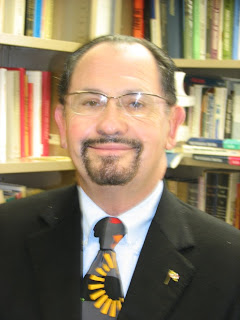In line with the theme, Imagine, we asked professors: What drew
you to sociology? What keeps you interested in the field? Below is the
wisdom they shared...
Julie Park
My first undergrad class in sociology, "interpersonal interracial

dynamics." How could you not be interested in sociology after that?!
The continual opportunity to ask interesting questions about society
and then trying to answer them.... Making connections between two
seemingly unrelated ideas to generate new ways of looking at things...
Helping to make sense of the world around us as its pace of change is
ever accelerating. It's all about people, groups of people... and to
me, that's never boring!
Harriet Presser
 I was planning to be a social worker, and took the required sociology
I was planning to be a social worker, and took the required sociologycourses in my first two undergraduate years (at U of FL) before
getting married and dropping out for a while. When I returned to
school (GWU, mostly at night, as had a young child by then) I decided
to stick with sociology as the best way to quickly finish courses for
my B.A. degree. I remained only mildly interested in sociology when,
after another break--and a divorce--I went to graduate school (UNC)
for my M.A., but became extremely interested when, after another
break, went back for my Ph.D. (UC Berkeley) and studied demography.
It is the many fascinating issues of social demography, especially
when viewed from a gender perspective, that have maintained my
interest.
David Segal
began college as a geology major, never having heard of sociology,

and being enthralled with glacial paleontology. During my first two
college years, I learned that geological processes are very slow
(glacial, one might say), and that glaciers are very cold. At the same
time I took my first social science courses, and became consumed by
them. After college I did my graduate work at the University of
Chicago, where some of the great minds of the social sciences were
teaching. It was a time of social turbulence--the civil rights
movement, the Vietnam War, etc., and I think a majority of my entering
cohort of graduate students saw in sociology a means to address some
of the problems of the world. Perhaps as important as the fame of
the people I studied with was the fact that they were engaged with the
world. Phil Hauser, the chair of the department, had been the director
of the Census Bureau, Don Bogue, for whom I was a research assistant,
was battling population growth, Morris Janowitz, who was my mentor,
was off to Washington or on TV at least once a month to talk about
military policy. I was attracted by the possibility of having an
impact beyond the walls of the academy. After Chicago, I joined the
faculty at the University of Michigan, where the dept. chair, Al
Reiss, was constantly consulting and testifying in the area of
criminal justice. I took a leave from Michigan in the first years of
the volunteer military force, to establish a sociological research
program for the Army, and found it fulfilling to have senior military
commanders, federal executives, and members of the Congress interested
in my research. I came to Maryland after three years of federal
service, intending to return to research on social stratification and
political sociology, but it never happened. The constituencies that
had been developed outside the university--the military services, the
Congress, and the media, pressed me top continue research on the
military. I think if I ever reach the point at which the only people
who read what I write are other sociologists, I'll turn to my
childhood ambition and become a cowboy.
Jeff Lucas
My undergraduate degree was in business. As I was working in a real
job and starting to move through my MBA, I was exposed to Weber’s The
Protestant Ethic and the Spirit of Capitalism and then Durkheim’s
Elementary Forms of Religious Life. I thought the work was
fascinating, particularly in how it connected to my own experiences. I
was raised Catholic, for example, and Durkheim’s discussion of the
functions of ritual explained well my experiences with religion. These
works led me to pursue an advanced degree in sociology.

Carrying out research, particularly with students, teaching in its
various forms, and learning what other researchers are doing all keep
me interested in the discipline. The research I do is in group
processes, and there is a one-day mini-conference every year for group
processes researchers, usually the day before the ASA meetings. I find
this mini-conference especially invigorating. I get to learn what
other people in my area are doing, talk with people who approach
research in similar ways to me, and get a sense of future directions
in the area.
George Ritzer
 I was attracted to sociology because of its wide horizons and many options. It is this that has kept me interested in sociology and keeps me interested to this day. Over the years I have changed my focus many times, including work and occupations, theory (and among many different kinds of theory), metatheory, consumption, social geography, globalization, and most recently prosumption. Following
I was attracted to sociology because of its wide horizons and many options. It is this that has kept me interested in sociology and keeps me interested to this day. Over the years I have changed my focus many times, including work and occupations, theory (and among many different kinds of theory), metatheory, consumption, social geography, globalization, and most recently prosumption. Followingone interest for a time has inevitably led me to others. I hope and expect that this process will continue.
There’s always something new; sociology is always new!

No comments:
Post a Comment
Note: Only a member of this blog may post a comment.